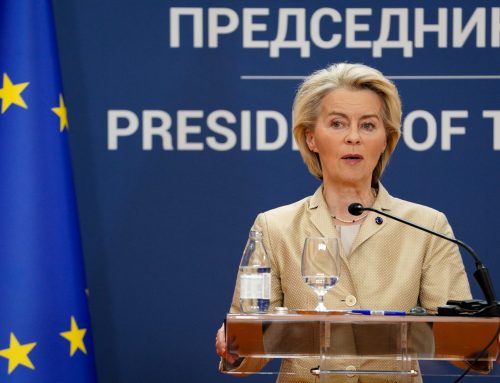“The EU has been actively supporting the functioning of the Energy Agency of the Republic of Serbia for over 20 years, starting with the technical assistance that facilitated its establishment. To date, the EU has funded eight projects worth more than EUR 10 million. Initially the focus was on capacity building and training, while at present the emphasis is on new technological tools improving the efficiency of the Agency”, as pointed out by Gligo Vuković, Project Manager at the EU Delegation in Serbia, at the final event of the project “Support to Energy Agency of the Republic of Serbia for energy market and network infrastructure data collection and analysis”.
“The EU underlines the importance of the Agency’s independence and expertise as key elements ensuring the stability of investments in the energy market. The upcoming amendments to the EU regulation foresee an extension of the Agency’s competence, which the EU stands ready to respond to through various forms of support in the future,” Vuković added.
On behalf of the Ministry of Mining and Energy, the project results presentation in Belgrade was attended by Jovana Joksimović, Assistant Minister for International Cooperation and European Integration.
The project “Support to Energy Agency of the Republic of Serbia for energy market and network infrastructure data collection and analysis” has aimed to improve the capacity of the Energy Agency of the Republic of Serbia through the development and implementation of new information systems. This project is part of the IPA2018 programme, designed to support Serbia on its path to European Union accession.
The project set ambitious goals to improve the energy sector through a series of key initiatives. One of the main focuses has been the development of new information systems. The systems are intended for more efficient energy market and infrastructure data collection and analysis, in order to facilitate informed decision-making.
In addition, the project aimed at strengthening legislative framework in the energy sector. This included improving of the legal framework in line with European standards, in order to facilitate the implementation of EU directives and regulations. These steps are crucial to harmonizing national legislation with European standards, thus creating a stable and predictable business environment.
Another important aspect of the project was to increase the public sector capacity. With training and technical support, the project contributed to capacity strengthening of the Energy Agency and other relevant institutions. This enabled more efficient regulation of energy sector and better resource management.
Key activities under the project involved the development of software solutions for data collection, processing and analysis. These tools were used to improve information infrastructure and support decision-making in the energy sector. The project also organized trainings for the staff of the Energy Agency and other relevant institutions, in order to ensure proper use of new systems and tools. Increasing transparency was also an important goal, which included improving access to energy market information for all relevant actors, including decision-makers, industrial entities and the general public.
The Innovation Center of the School of Electrical Engineering in Belgrade was a key partner in the development of new information systems and software solutions for data analysis. The cooperation between all participating institutions enabled effective implementation of the project and the achievement of goals that have significantly impacted the improvement of Serbia’s energy sector.
The project represents a significant step forward for the Agency and the entire energy sector in the country, it contributes to the infrastructure modernization and the raising of standards to match those in the EU.
The European Union is the leading donor in the field of energy in Serbia, where it has invested over one billion euros in grants since 2000. In Serbia, the EU provides funding for projects aimed at security of supply, diversification of energy sources, market liberalization and improvement of energy efficiency.
Read more:
Greater nuclear security with EU support






